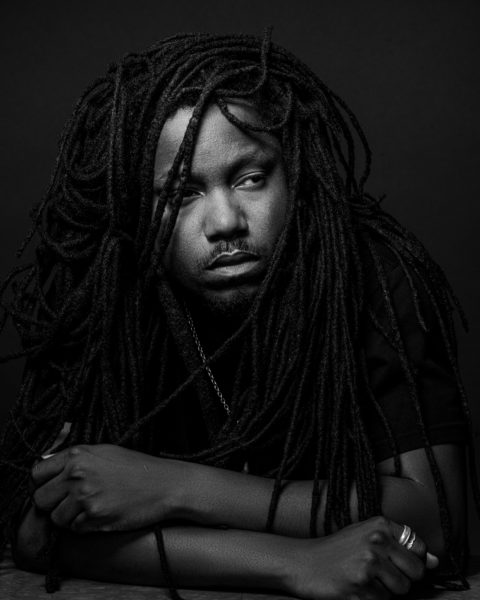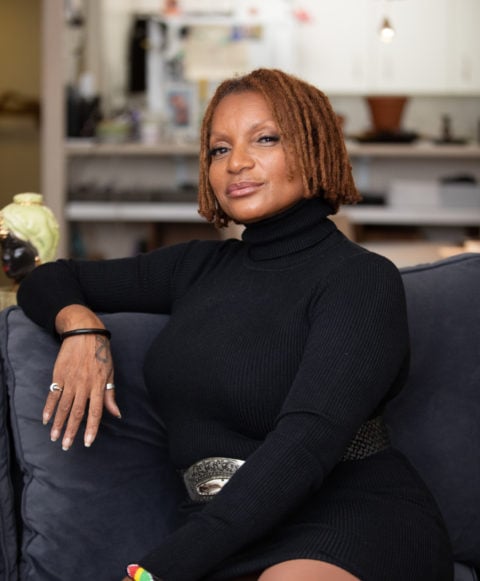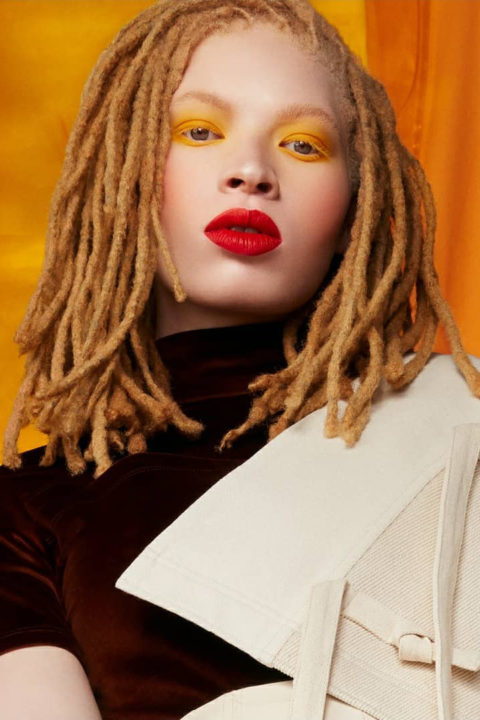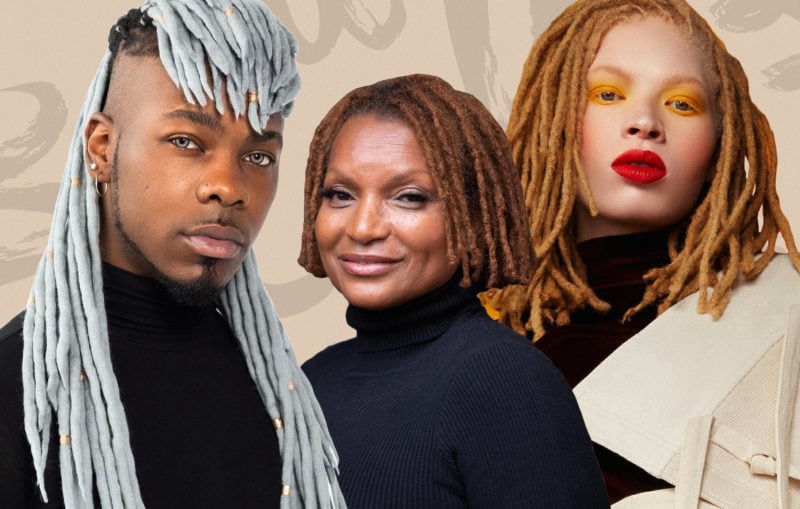Locs are a beloved hairstyle — and a personal journey that people feel called to for many reasons.
This is Texture Talk, our long-running column that deep dives into the dynamic world of curly hair, from crowns of curls that are free flowing to strands that are tucked away in a protective style.
An incredibly empowering thing about afro-textured hair is how versatile it is. Locs — a protective hairstyle where strands of hair are twisted around themselves into permanent fused units — are heavily associated with Black identity and have rich and complex origins. From Africa to Asia to the Americas, the hairstyle has been worn continuously by people of colour from various regions around the world, dating from ancient times until now. But despite their long history, locs were only really thrust into Western culture in the 1970s thanks to the success of reggae artist Bob Marley, who wore them as a part of his connection to Rastafarianism — a religious movement born in Jamaica.
RELATED: Tyrone Edwards on the Powerful Relationship He Has With His Signature Locs
For decades, the term “dreadlocks” has been used to describe the style, but today it’s considered problematic due to its deep entanglement in colonialism and the establishment of Eurocentric beauty standards, which have caused natural hair and protective styles to be unfairly judged and policed. Thus, there’s been a push to drop “dread” altogether to create a healthier narrative.
Sure, locs continue to be symbolic of spiritual or religious beliefs for many who sport them, but for a multitude of others, the hairstyle holds different meanings. It can represent cultural or ethnic pride, a step in determining one’s own beauty ideal or making a hairstyle choice that simply feels convenient (though it does come with its own unique maintenance routine — and yes, that means regular washing). Here, four creatives share their locs journey and the experiences they’ve encountered along the way.
Shaquone Blake
Model, Toronto
@onceaking__

I grew up admiring locs. (My dad has had them for as long as I can remember.) To me, they represent power. I started growing my own when I was around 14, and five years into my locs journey, I began dabbling with different hues — blond, blue, red and green. But grey has always been my favourite hair colour; it reminds me of wisdom. I went through a series of boxed dyes to achieve my desired grey shade, but the process was really damaging to my hair so I eventually went to a hairdresser to try faux locs. My own locs get braided; then extensions (mine are handmade in Poland) are added in using a crochet technique. I’ve spent the majority of my life trying to fit in, but now I’m all about standing out. A locs mullet (bangs at the front, long in the back, shaved sides) has been my signature look for the past three years. My hair makes me feel magical, unique and exclusively me.
Naskademini
Photographer, Montreal
@naskademini

My parents and my brothers all have locs. Even my aunt has beautiful locs flowing almost all the way down to her ankles. I got mine done in Trinidad and Tobago, where my family is from, and it’s been quite a few years now that I’ve been growing them out. There are unpleasant stigmas associated with locs due to a lack of knowledge and the ways people can see you. A common question I get asked is if I wash my hair. A lot of people also mistake locs for braids or continue to refer to them as “dreadlocks,” not realizing that the traditional term now has a negative connotation attached to it. People have also randomly asked me if I have weed, assuming I’m a stoner or that I sell it. There’s a larger conversation that needs to be had about how people view the hairstyle and think you’re living a certain way based on your appearance.
Roxanne de Nobrega
Makeup Artist, Toronto
@roxannedenobrega

My locs journey started in the late ’90s with me shaving my head and going completely bald to get rid of my relaxed strands. I didn’t know any other way because there was not a lot of information available on locs, so it was a process learning about them. People would ask me why I was growing them out, commenting that I wouldn’t be able to find work. Maybe I wouldn’t have been able to get an office job — especially back then — but because I’m a makeup artist, I felt like I had creative licence to do what I wanted. Also, my image of locs was Angela Davis, an educated activist and university professor who had them at the time. Seeing her really gave me confidence and made me not worry about others’ opinions. I grew up being told that hair is a woman’s beauty, but I’ve never liked being controlled by anything. So when I shaved my head, I felt empowered knowing that my beauty was me and growing locs would only add to it. Since the ’90s, I’ve had my locs really long and short, I’ve coloured them many times and I’ve even shaved them off, grown an afro and then eventually retwisted my hair. I’ve never stuck to just one style. I just love how in control I feel with my locs.
Damaris White
Model, Barrie, Ont.
@queen.albino

I’ve been growing my locs for eight years. I was tired of the process of getting my hair chemically relaxed (which was often painful) every few weeks or having to get extensions redone. To me, locs felt like something that would be easier to maintain and that I could take on myself. And they’re very versatile: I’ll do updos or half-up styles and curl them or braid them. Common stereotypes I experience about my locs are people assuming I’m Rastafarian or spiritual or that I’m either vegan or vegetarian. And as a model, I’ve been on-set with hairstylists who think they can’t do much with my hair so they just leave it down.
A version of this article first appeared in FASHION’s March 2023 issue. Find out more here.
